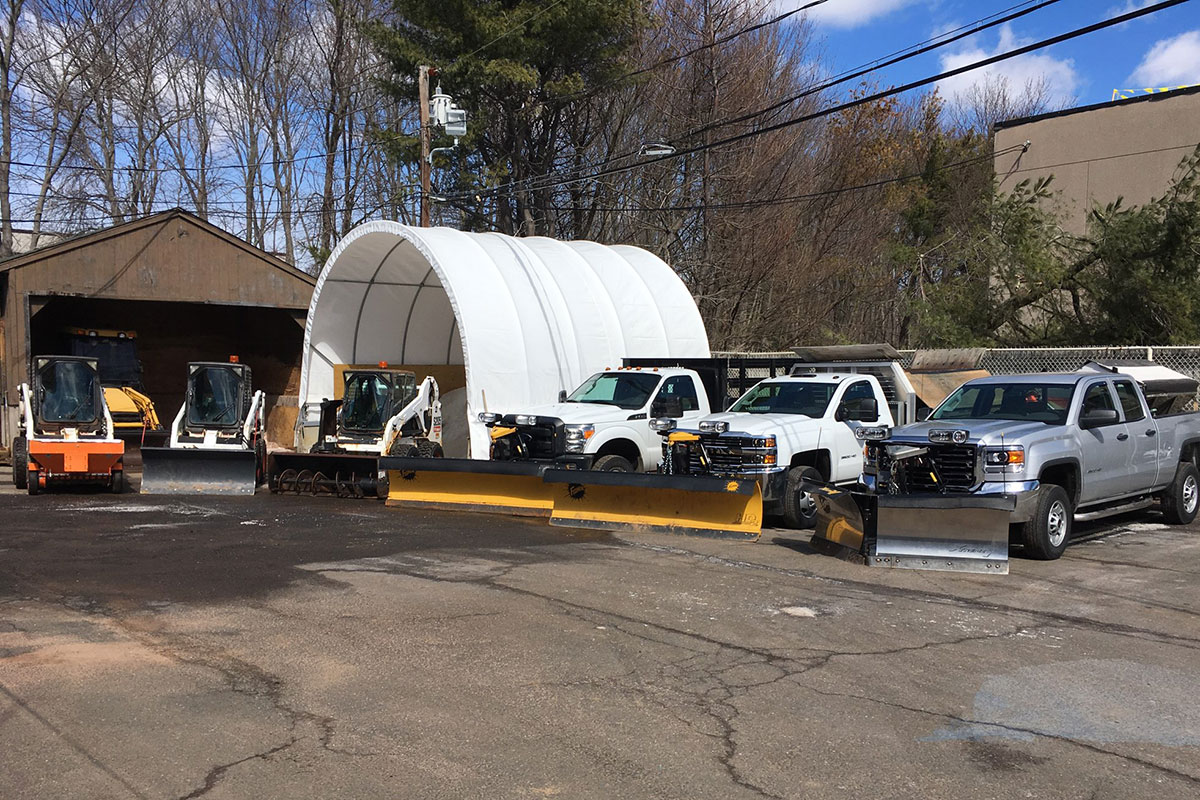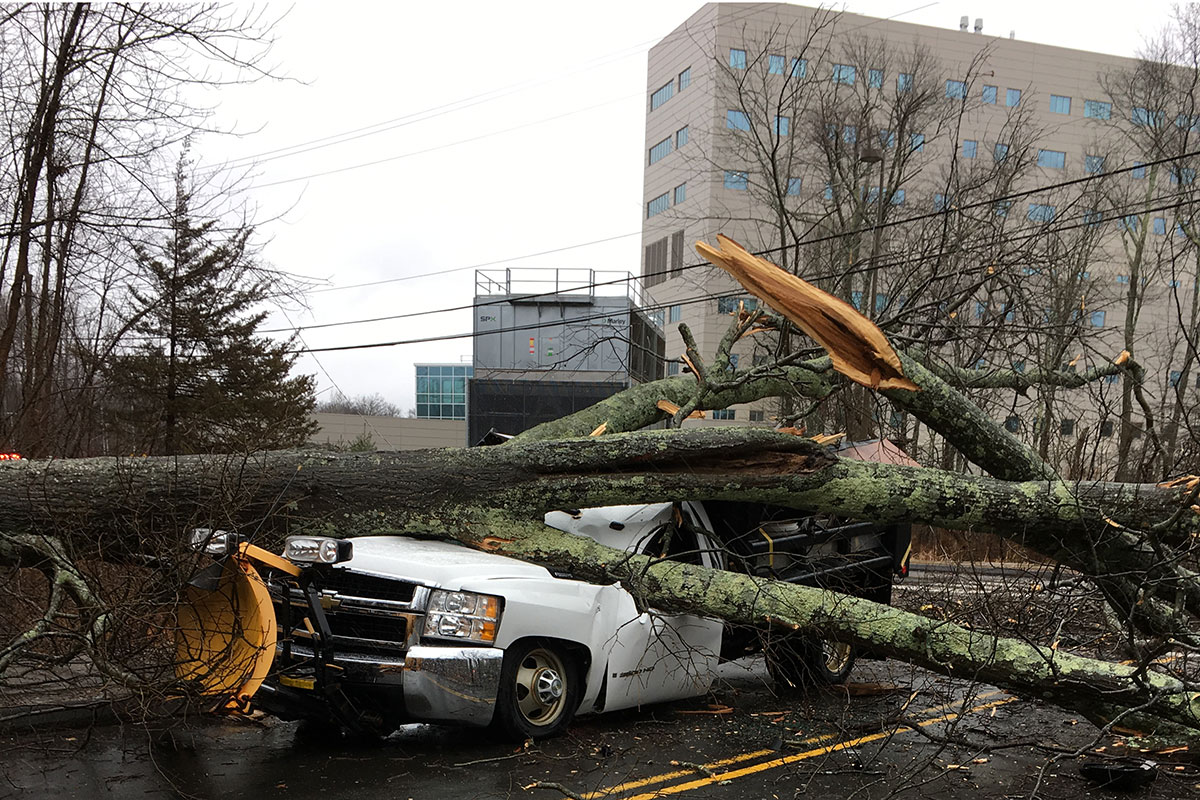Even when UConn Health has an emergency closing, it’s not really closed.
Inpatient care must go on, as do some laboratory experiments, and other 24/7 operations such as public safety, housekeeping, dietary, information technology, the telephone operators, and the Connecticut Poison Control Center.
Making that possible is the work of Facilities Management and Operations, whose staff ensures those who do need to come to work (or to the hospital) can do so safely.
“They tackle their job with a real positive attitude, and they’re definitely engaged in the work that they do,” says Cliff Ashton, associate vice president of Facilities Management and Operations. “They work around the clock. They do take breaks for safety purposes, but it’s not an easy job.”
For this week’s nor’easter, that included six groundsmen operating four plow trucks and two skid steer machines, plus contractor support including six plow trucks and drivers, a bucket loader and operator, and 15 laborers shoveling around the entrances and fire exits.
“There’s a certain order of priority,” Ashton says. “When it’s snowing real hard, the focus is on keeping the roads open. We obviously want to keep access to the ambulance bays clear.”
Part of what makes the storm response effective is the preparation work that takes place in between storms.
“We check all the equipment, make repairs when needed, and we flush all the equipment after a storm because of all the salt,” Ashton says. “There’s always freezing and thawing, and our guys are out there first thing in the morning, going around all the sidewalks to put the ice melt material down.”
What can the rest of us do to help with the snow removal effort? Observe parking bans, for starters.
“When we have a parking ban, there’s not supposed to be anyone parking roadside or in uncovered areas, and that does get to be a problem,” Ashton says. “The other important thing is being attentive to their own personal safety. People should wear the right footwear to get from their car to the building to reduce the risk of falls.”
Logistics Management also has storm-preparation protocol, which includes fully stocking all hospital departments, shifting schedules to minimize staff traveling in dangerous conditions, and coordinating with different areas to determine their needs.
"We'll provide cots to the operators, the help desk, and Correctional Managed Health Care pharmacy, and reach out to the nursing supervisor to make sure we have enough cots for hospital staff," says Logistics Management Director Jeff Boyko. "For the hospital, we're always servicing every facet. The outpatient clinical areas are often closed, but the urgent care offices may stay open, and we also make sure lab medicine and the pharmacy can continue to serve all the correctional facilities."
Heroism and Good Fortune
A member of the UConn Health grounds crew is being called a hero after a close call following the March 7 nor’easter. Mark Koziol and fellow groundsman William “Toby” Berry were in a grounds truck on lower campus when they stopped to pick up a sign. With Berry still in the driver’s seat, a tree fell on the truck. Koziol, who hadn’t returned to the truck yet, realized the danger and, risking his own safety, pulled his coworker out of the truck. Thankfully, both escaped serious injury. (Photo by Joe Caron)

